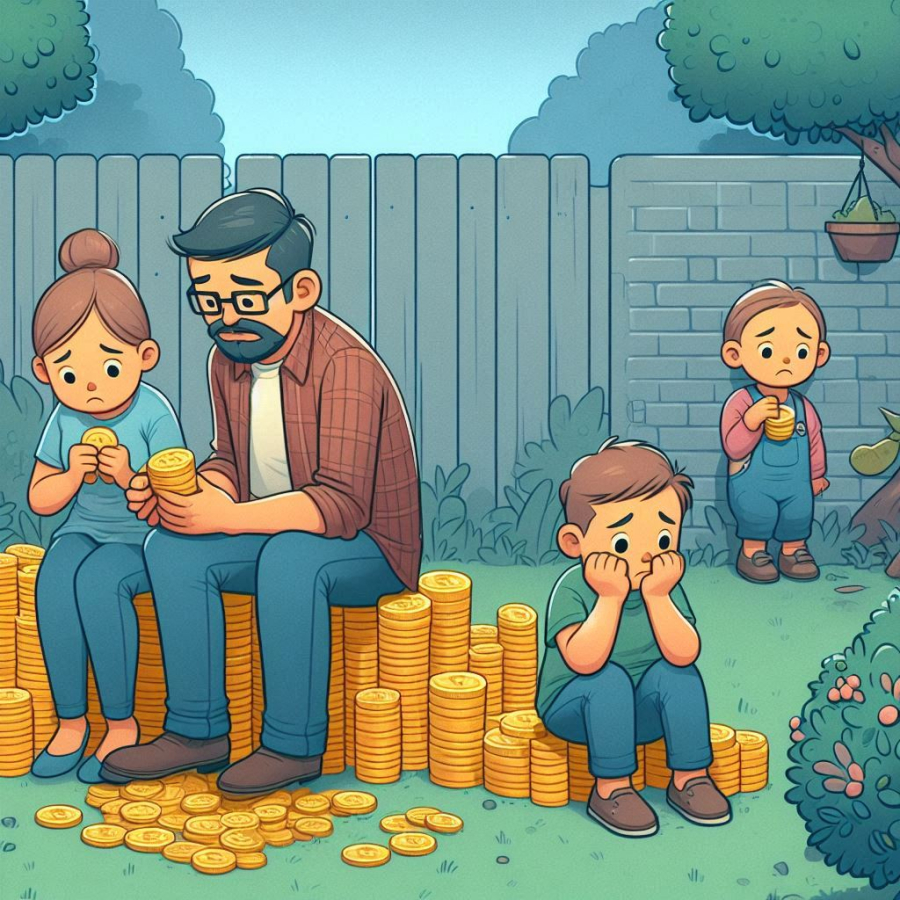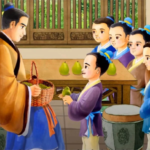The biological cord is cut at birth, but a new “psychological cord” forms between a child and their family. As such, a child’s happiness and fulfillment depend heavily on their family’s nurturing. As we grow up, the level of happiness and satisfaction we experienced as children continues to influence our adult lives. However, not all children are fortunate; some spend their lives healing from childhood wounds.
If your family exhibits the following three signs, it could indicate a serious problem in the parent-child relationship.
Sign 1: Money Takes Precedence Over Family Relationships
A notable example is Taiwanese star Chang Shao-Han, renowned for her exceptional talent and beauty. Her career flourished until 2008 when she publicly announced during a press conference that she was severing ties with her mother.
Not long after, Chang’s mother accused her of addiction and extravagant spending. In response, the actress refuted these allegations and revealed that she had endured a decade of financial exploitation by her mother. Due to her gambling addiction, Chang’s mother had used her daughter’s money to pay off debts, leaving her bank account empty despite her successful career.
Chang started her career at 15, working tirelessly to pay off family debts and make a living. During this time, her mother managed every aspect of her finances and work, appropriating all her earnings, leaving her destitute.
Additionally, Chang’s uncle criticized her for not providing financial support when her parents were ill. This incident shocked the Chinese public, but most people sympathized with Chang, empathizing with the challenges she faced due to her mother’s actions.

When Money Takes Priority Over Family
Chang Shao-Han is not alone; many other stars have faced similar exploitation by their parents, enduring long periods of financial and emotional abuse.
In families where money is valued over emotions, their actions primarily target your finances. If you are no longer of use to them, they will discard you. Only by distancing yourself from such families can you find freedom and live your own life.
Some parents will exploit their daughters to ensure their sons have a more comfortable life.
Sign 2: Materialism Over Spiritual Needs
A viral video showed a young girl enthusiastically preparing a birthday meal for her mother. Viewers could sense the girl’s dedication and hard work throughout the cooking process.
Upon completion, the girl, brimming with happiness, asked her mother, “Won’t you praise me?” Instead of appreciation, the mother scolded her daughter, believing she had wasted resources by cooking too much food for just the two of them. This reaction left viewers empathizing with the girl, feeling that they might not want to cook for their mother again if faced with such a situation. Unreasonable criticism can create distance in family relationships.

When Materialism Overshadows Emotional Needs
Many parents tend to find fault, assign blame, and ruin their children’s joy. They prioritize materialism, neglecting their children’s spiritual needs and failing to consider their thoughts and emotions.
We understand that today’s parents have endured financial struggles and value frugality. However, consumption patterns and life values differ across generations. While saving is essential, it shouldn’t turn us into miserly individuals who lose out on life’s joys and connections.
Sign 3: Pride Takes Precedence Over Children’s Wellbeing
Are you willing to apologize to your children when you make a mistake or treat them unfairly? In reality, many parents find it embarrassing to apologize to their offspring.
A story shared by a netizen once attracted attention: When a child lost 50 yuan at home, the father suspected that the child had taken it and beat him. The next day, the mother found the money under the sofa. The child hoped for an apology, but instead, the father pointed at the child’s head and said, “Who told you to do bad things before?”
This brings to mind the saying, “Parents spend their entire lives waiting for their children to say thank you, but children spend their entire lives waiting for their parents to say sorry.”
When you value your pride over your relationship with your children, you lose the precious connection between you.

When You Value Your Pride Over Your Relationship With Your Children, You Lose the Precious Connection.
Many parents push their children to achieve high academic results and then boast about it on social media. They don’t consider whether their children want to be showcased this way or if they even enjoy pursuing the goals set by their parents. Sometimes, children merely try to please their ambitious parents, even reluctantly obeying because they cannot resist. If the children fail, all the blame falls on them, as if they have betrayed their parents’ expectations and investments. The children then have to work harder to “repay” their parents.
Some parents, driven by pride, scold their children in public without considering right from wrong. They worry about being judged for their parenting skills but fail to acknowledge their children’s embarrassment and hurt.
When parents value their pride above all else, children will gradually distance themselves. As a result, the parent-child relationship struggles to thrive and reach its full potential.







































